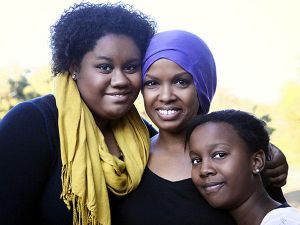About-cancer/coping/caregiver-support/caregiving-after-treatment/zh
治疗结束后的护理
重要的是,癌症护理人员必须了解,尽管治疗已经结束,但癌症幸存者仍在应对许多挑战。 他们通常会面对治疗带来的副作用,并学习如何适应经历的许多其他变化。 他们可能不会像他们希望的那样尽快恢复正常生活。
现在我该怎么办?
一旦治疗结束,大多数人都希望将癌症治疗抛在身后。尽管如此,照顾者最常见的反应之一就是问自己,“现在我该怎么办?”他们习惯了很多角色,如医疗保健,帮助,管理家务,并协调从朋友来访和来电。 许多人必须考虑如何适应这种“新常态”。
到目前为止,您的重点一直放在使患者接受治疗上。 因此,这可能是一个喜忧参半的时期-您可能会很高兴治疗结束。 但与此同时,与亲人一起经历的全部冲击可能会开始打击您。
意识到自己的感受
治疗结束后会有很多不同的感觉是正常的。 一些护理人员说,治疗后他们的感觉更加强烈,因为他们有更多的时间来处理这一切。
您可能会很高兴和放心,您所爱的人正在接受治疗。 但是您也可能会感到焦虑,因为您不再针对癌症做任何事情。 仍然看到您的朋友或家人处于虚弱状态时,您可能会感到悲伤和失落。 这也可能是您比以前更加孤独和孤独的时期。
您可能有以下共同感受:
- 想念你从病人的医疗团队有支持。
- 感到有压力回到自己的旧生活。
- 缺少需要或忙碌。
- 感觉孤独。 朋友和家人可能会回到他们的日常生活,让您有更多工作要做。 他们可能不会像您所爱的人正在接受治疗时那样与您签约。
- 避免与其他人外出,以免在您离家时亲人发生某些事情。
- 很难与那些没有经历过你的人建立联系。
- 当您看到自己所爱的人因情绪低落,沮丧或自尊心而挣扎时,会感到百感交集。
- 担心任何身体问题都是癌症复发的迹象。 但与此同时,我也很感激这个人在这里,并成为您生活的一部分。
- 期待为您最重要的事情投入更多精力。
这些感觉都是正常的。 您可以给自己时间反思自己的癌症经历,从而对它们进行管理。 人们需要不同的时间来应对所面临的挑战。
为自己腾出时间
如果您一直搁置自己的需求,那么这可能是考虑如何最好地照顾自己的好时机。 有一些休息时间来恢复您的思想和精神可以帮助您应对。 您可能要考虑:
- 回到您喜欢的活动
- 寻找他人可以帮助您的方法
- Finding new ways to connect with friends
For example, some caregivers feel the need to give back to others who are facing cancer. They turn their energy to helping people in their community, joining support groups, or volunteering with cancer organizations. For many, making a difference in the lives of others helps them to help themselves.
Let Others Help You
You may feel tempted to tell people that you and your loved one are doing fine and don't need help. It may be that you don't want to trouble people any longer. Chances are that both of you are tired and are still getting used to life after treatment. It may help to tell others that you're still adjusting and let them know ways they can help. Family, friends, neighbors, and coworkers who stayed away during treatment may now be willing or able to support you. Think about what types of support would be helpful. The clearer you can be about your needs, the easier it will be to get the help you need.
However, be aware that others may not be there to help. They may feel awkward about helping or assume that you're getting back to your routine and don't need help any more. Or they may have personal reasons, such as lack of time or things going on in their own lives.
Talking with Family
Try to remember that this time after treatment is new for all. Your family members may also need time to adjust to this new chapter of life for your loved one. Some points you can make:
- Let them know that recovery may take more time than expected. Your loved one may lack energy for a while and need time to adjust to this new normal.
- Ask them to continue doing your loved one's regular duties and tasks until he can get back to a normal routine.
- Let them know what the follow-up care will be and how your loved one will be monitored.
- Be honest about what types of support are needed from them now that treatment is over.
- Thank them for all they did during treatment.
Good communication is just as important now as it was during cancer treatment. Listening to each other, patience, and support can make a big difference.
